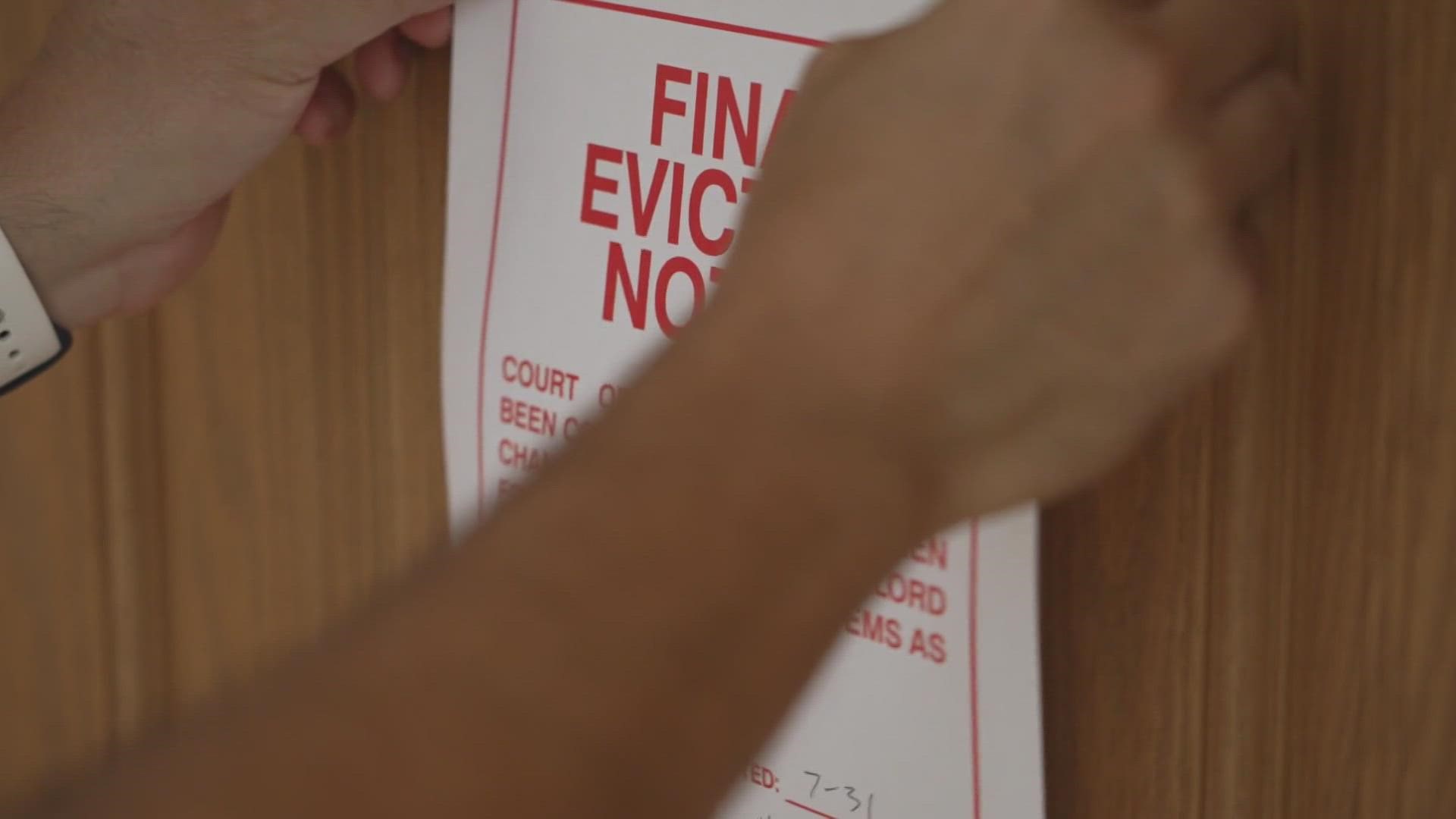AVONDALE, Ariz. — Anna Huberman has been a judge for more than a decade. The most common case she hears is evictions.
"An average of 400 a month for 12 months for ten years," Huberman said.
That would total more than 40,000 eviction cases during her tenure. During the pandemic, the number of evictions dropped drastically. An eviction moratorium kept the county from removing people from their homes if they had a pandemic-related hardship. Judges had more say in if someone had an extension.
However, the moratorium ended last year, and the number of cases increased.
"It's a huge change," Huberman said. "Eight times more, ten times more?"
Overall, the number of evictions is up more than 67% from a year ago. Last month, Maricopa County saw the highest number of evictions filed since 2008.
"It's draining. It's very draining," Huberman said.
"During the pandemic, that got off-balanced," Denise Holliday, a long-time eviction attorney, said.
Holliday has represented landlords for decades. She said the rise of evictions was inevitable.
"When you get that imbalance, you are always going to have repercussions," Holliday said.
The pandemic moratorium artificially cut down on evictions. That cut down on the number of available apartments, limiting supply. With less supply to meet demand, prices rose. When the moratorium ended, you had a combination of rising rent prices and a number of tenants further and further behind on rent.
"Landlords have lost a lot of money over the last several years. They need to make that money back," Holliday said.
While the number of evictions is up to the highest level in more than a decade, the eviction rate is not above decade norms because of a rapidly growing population.
"We are heading back to normal, but we are still around 20% under where we used to be," Holliday said.
Still, the number of cases is rapidly increasing. Wednesday was a slow day for Judge Huberman, but she still saw four cases in 30 minutes. The first case involved a man with dialysis who couldn't pay after his roommate moved out.
In the second case, a man fell behind on rent after his wife had a stroke—and ended up in the hospital.
Both cases saw the eviction process move forward.
"Unfortunately, hardship is not a defense to the nonpayment of rent," Judge Huberman said.
The eviction process almost always moves forward unless the landlord does not follow proper procedure.
The rulings in these cases are often getting more costly as well. The average judgment is $1,400 more than it was a decade ago.
Both Huberman and Holliday said there needs to be more affordable housing in the Valley to provide more options to people facing evictions.
Up to Speed
Catch up on the latest news and stories on the 12News YouTube channel. Subscribe today.

